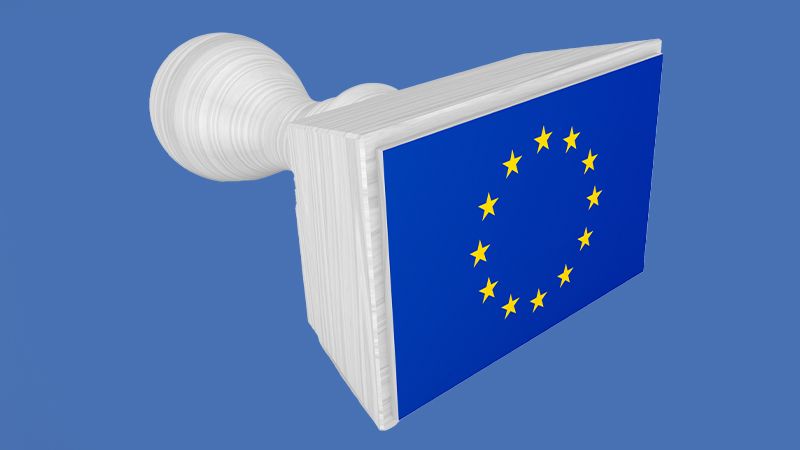Members of the European Parliament have given their seal of approval to the Corporate Sustainability Due Diligence Directive (CSDDD) during the last plenary session of this mandate before the European elections, paving the way towards increased scrutiny of business practices.
Companies within the scope of CSDDD will soon be required to conduct human rights and environmental due diligence to identify, prevent, mitigate and remediate adverse human rights and environmental impacts in their supply chains. They will also need to engage with workers and other stakeholders in a meaningful way as part of their due diligence activities.
However, the agreement reached with member states made a number of concessions from the original proposal, increasing the thresholds for the scope of application from 500 to 1000 employees, and from 150m to 450m in turnover. It also introduced a three-stage phase-in approach, so that the directive will not apply to all companies in scope until five years after entry into force.
Although SMEs will no longer be directly in scope, Anti-Slavery International said the Directive will still have an impact on smaller businesses. SMEs will still be engaging with companies that are in scope in their due diligence processes and, additionally, the Directive outlines how larger buyers can support their smaller suppliers in the due diligence process through accompanying measures.
The final step of the legislative process will take place at the upcoming Competitiveness Council between 23 and 24 May, where EU Ministers will rubber-stamp the legal text. Following this, the CSDDD will enter into force 20 days after its publication in the Official Journal.
While there was some regret over the last-minute changes that “reduced the ambition” of the Directive, Aleksandra Palinska, executive director of Eurosif, said the adoption of the revised CSDDD text was “a major political breakthrough” and an important step forward “in fostering responsible business conduct and in accelerating a just transition to a sustainable economy”.
“Despite the significant limitation of the scope, a complete removal of the provision on financial incentives for the promotion of transition plan implementation, and a lengthy phase-in period, we welcome the fact that the provisions on transition plans have been retained, which is key to accelerating a just transition to a net-zero economy. It is essential that this Directive is now formally adopted by the EU member states before the European elections.”
More reaction
Isabella Ritter, senior EU policy officer at ShareAction, said: “While we would have preferred a more robust and far-reaching legislation, this is a historic day for the EU and a crucial step towards holding companies accountable for their negative impacts on people and the planet, including child labour, forced labour, environmental degradation and pollution.
“However, this is just the beginning. Looking ahead, the completion of the EU’s due diligence framework will require the adoption of accountability rules for financial institutions for their clients’ activities, ensuring a more coherent and effective system.”
Nicolas Lockhart, partner at Sidley, added: “These due diligence rules go further than the EU’s ESG disclosure rules. The disclosure rules require companies to be transparent about their ESG risks and impacts but they don’t require actions to address them. It’s about transparency not behaviour change. The due diligence law will require companies to take action to improve ESG outcomes. It is about transparency and behaviour change.”
“CSDDD is different from many other due diligence laws because it will require due diligence covering all ESG issues – people and the environment. Other due diligence laws are more limited, covering only human rights or even just forced labour. This is much broader in scope. Many large companies will have to revisit their approach to due diligence to bring them into line with the new law.”
Meanwhile, Keith Fenner, senior vice president EMEA at Diligent, cautioned that while the new regulation will foster greater corporate accountability and increased supply chain sustainability, it would also bring challenges for boards, risk and compliance teams.
“As part of the new obligations, a major challenge for many organisations is to not only collect the relevant information across the entire value chain, but also to publicly report and maintain the data continuously,” explained Fenner.
Most businesses ‘not fully compliant until 2030’
Following the announcement of the European Parliament’s approval of the CSDDD, legal and business services provider, DWF, launched its first True Diligence report, which revealed that EU and UK business leaders expect at least half of their supply chain will not be CSDDD-compliant in the next two years.
Meanwhile, 57% of C-suite executives predicted that most businesses will not comply fully with the legislation by 2030, with just 27% saying their organisation currently understands the application of CSDDD to their business.
The report also found that a lack of awareness and incentives had discouraged companies from examining their impact and supply chains. Companies that fail to meet requirements under CSDDD will risk fines of a minimum of 5% of their global net turnover.
“CSDDD has the potential to empower businesses to increase their transparency mechanisms and address the greatest risks to people and the planet in their value chain, but our report has exposed a knowledge gap between C-suite leaders and regulatory expectations,” Tracey Groves, head of sustainable business and ESG advisory practice at DWF, commented.
“To embrace greater accountability and drive meaningful change, regulators must provide a template for businesses to work from and a portal to access this information.”








